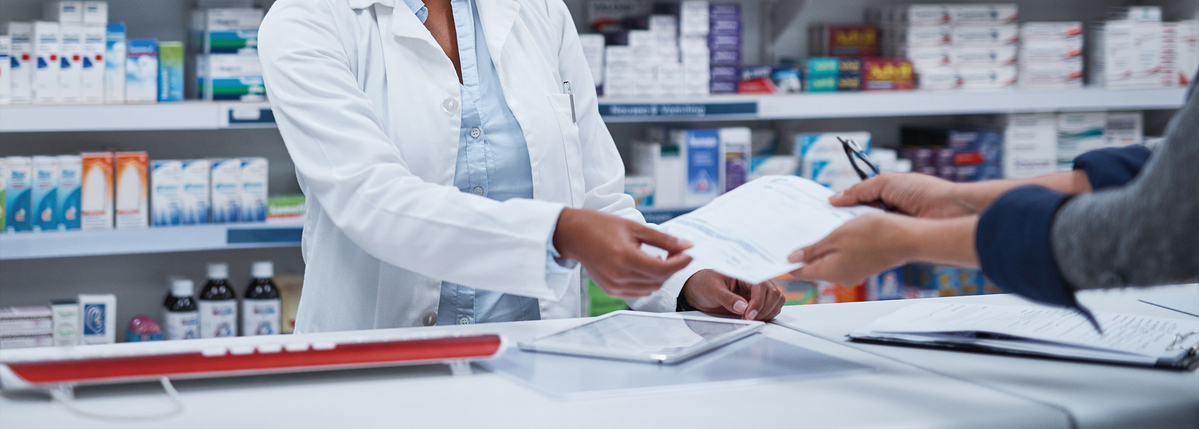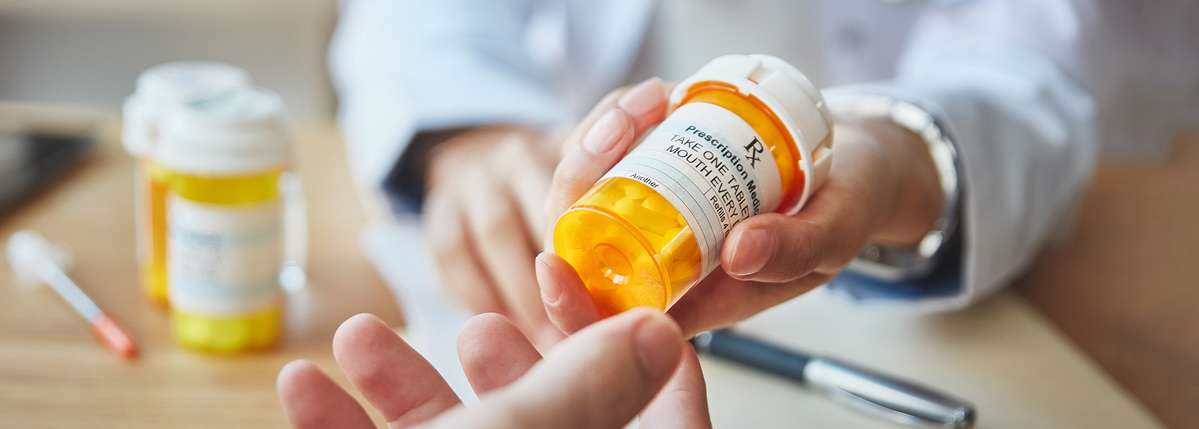What is insulin resistance?
Written by: Ginger Vieira
5 minute read
December 7, 2021
Insulin resistance is the root cause of type 2 diabetes. Learn what you can do to prevent or slow the progression of insulin resistance in your body.
This educational content is brought to you by the ADA x BT1 Collab.
The following transcript has been edited for length and clarity.
Ginger Vieira: Welcome to Collab Conversations with the American Diabetes Association and Beyond Type 1. My name is Ginger Vieira, and with me today is Dr. Nuha El Sayed, vice president of Healthcare Improvement at the American Diabetes Association. Hi, thanks for joining me.
Dr. Nuha El Sayed: Thank you for having me.
So, today I would love to pick your brain about insulin resistance because it affects now how many tens of millions of people in our country, and then even more across the globe.
It is the root cause for type 2 diabetes, and it’s not just people with diabetes, it’s people who have prediabetes, people who are overweight, obese. So there are a lot of people, Ginger.
Okay, yes.
I would say I think … yeah. I think you’re talking about more than 80 million people.
Wow. Yeah. Okay. Can you define it for us? Can you describe what insulin resistance is in layman’s terms?
So to understand insulin resistance, you really have to understand what insulin does. So insulin is a hormone and it has, you can think about it as a key. It gets glucose from outside of the cells to inside of our cells. And our cells are our building blocks. And it’s a very important hormone because if glucose does not go in, then we do not have energy and we cannot survive.
We have three main organs where this occurs and it’s very important that it happens. So we have your muscles, your fat cells and the liver. And for people who have insulin resistance, as the name implies, there is resistance to entry of glucose into the cell. So these keys do not work. Those insulin do not work. So what happens is your pancreas has to work overtime. So the pancreas has to make many, many, many more keys to break in this resistance at every cell door. And that in itself is a problem. In medical school, they teach you that insulin is a growth hormone. So that does not help if you’re overweight, and it just becomes a vicious cycle.
Right. And as a former powerlifter, I often heard people say how insulin is the most powerful hormone in the human body, because growth, in some ways, is really helpful from insulin. If you’re trying to grow muscle and just obviously stay alive, but too much…
Yeah, you need a balance. We cannot live without insulin, and we also don’t want way too much of it running around our bodies.
Right. And I don’t think people might realize that it’s cells throughout every part of your body. It’s not just the energy that we think of when we hear we need insulin to help get glucose into our cells for energy. It’s the way your eyes function, being able to see, being able to feel. Could you explain that?
It’s our building block. It’s simply that our cells are our building block.
And the good news is we have so many medications now that help with insulin resistance and there are many, many things you can do to help with insulin resistance. People with diabetes who need insulin, just need insulin and that’s how it is. But when I hand somebody a prescription for insulin, I also speak to them about how we can improve insulin resistance so that the requirement is exactly what they need? They’re not needing more than what they need and they’re not taking less than what they need.
So what can someone do if they’re already at a point where they’re at a high level of insulin resistance? What can someone do to help reduce their insulin resistance?
So the biggest thing is really weight. If you think about it, it’s weight. So we encourage people to be mindful of what they eat and the composition, we call dietary patterns. So it’s really the choices that you make overall. It’s not a particular diet, it’s just choices that you make. Exercise, and for exercise, we want them to do both aerobic and strength. Because if you think about this insulin resistance issue, it’s at the muscle level. So you do strengthen and that really helps. And overall, there are, again, a lot of medications. So working with your healthcare team to pick medications that will target insulin resistance, and we’re seeing amazing results with newer agents really.
When we talk about reducing insulin resistance, we’re talking about things that help you become more sensitive to insulin so that you need less medications to help your body manage blood sugar levels.
That is exactly it.
Okay. And body fat blunts your sensitivity to insulin, is that how it causes insulin resistance?
So basically you consume more food than you need. You have a lot of glucose running around that needs to get into cells. So you need more keys, and it’s just a vicious cycle. That is how it works.
Right. Okay. I can say even as a type 1, if I gain or lose five pounds, I notice that I need a little more insulin, and just those five pounds makes a big difference up or down. Or I need a little less insulin if I lose five pounds. If you’re measuring your blood sugar and you’re paying attention to the medications that you’re taking, you can see it in your own body.
And it’s all about balance. There are people who have to be on insulin and there is a way to take it safely. And we don’t want people to skip taking insulin. And at the same time, we don’t want people to be overmedicated. So there’s always, always the balance, and there’s always an appropriate amount for each individual.
And even if someone is frustrated with the fact that their body is really struggling with insulin resistance, the first most important thing is to get your blood sugars down into a safe and healthy range.
Absolutely. Especially, there is a time when some people are newly diagnosed or if they’re going through a hard patch when the numbers are really high, sometimes the only way to get it down is insulin. And then after a few weeks, you have a discussion with your healthcare team, are other options a viable option? And over the years they have been. Newer agents are now in some places replacing insulin, in others insulin still stands. So it’s a dynamic process really.
And if you are, let’s say taking insulin or a medication that increases your sensitivity to insulin, and you’re experiencing low blood sugars, that’s not a sign that you should stop taking your medications, but …
I would definitely call my healthcare team because it probably means you need a reduction. And if you’re already on a very small dose, who knows. Some people do require medications being pulled. That’s a good thing, but it’s working with your healthcare team to safely do it is always your best bet.
So don’t ignore those low blood sugars. That means you have changed your insulin resistance in a positive way, and you need to fine tune your medications with your healthcare team.
And we see it all the time. In my clinic, I see a lot of type 2 patients, and actually type 1 as well, who have lifestyle journeys and they’ve made different choices, and we are deconstructing medications every day. So that is something expected. Yeah.
Well, thank you so much for that deep dive in insulin resistance.
Any time.

Author
Ginger Vieira
Ginger Vieira is an author and writer living with type 1 diabetes, Celiac disease, fibromyalgia and hypothyroidism. She’s authored a variety of books, including “When I Go Low” (for kids), “Pregnancy with Type 1 Diabetes,” and “Dealing with Diabetes Burnout.” Before joining Beyond Type 1 as Digital Content Manager, Ginger wrote for Diabetes Mine, Healthline, T1D Exchange, Diabetes Strong and more! In her free time, she is jumping rope, scootering with her daughters, or walking with her handsome fella and their dog.
Related Resources

You may need to switch your type 2 medications at some point in the year....
Read more

Getting the medications, services and supplies you need to manage your type 2 diabetes should...
Read more

Sadly, not all type 2 diabetes medications, devices and services are covered by health insurance...
Read more

